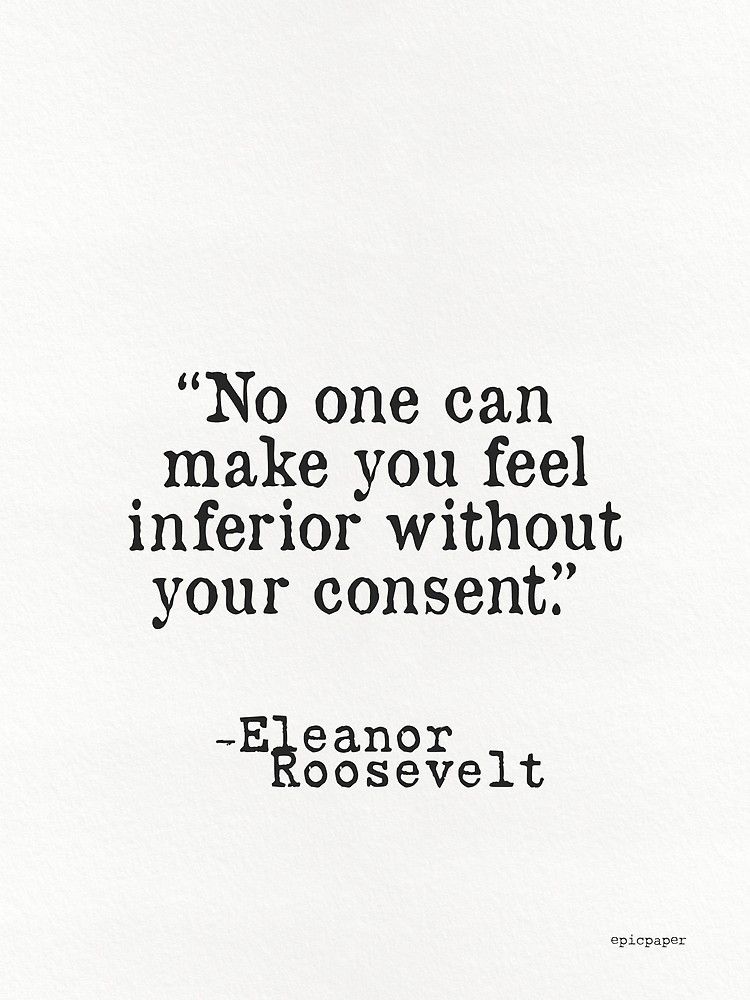No One Can Make You Feel Inferior Without Your Consent

In a world often riddled with judgments, expectations, and comparisons, Eleanor Roosevelt’s timeless assertion, “No one can make you feel inferior without your consent,” echoes through the corridors of time, offering a beacon of empowerment and self-validation. This simple yet profound statement encapsulates the essence of personal agency and resilience in the face of external pressures and criticisms.
At its core, Roosevelt’s assertion speaks to the fundamental truth that our sense of self-worth and dignity should not be contingent upon the opinions or actions of others. It emphasizes the power we possess over our own emotions, perceptions, and reactions. In a society where validation and acceptance are frequently sought from external sources, this reminder serves as a poignant call to reclaim our autonomy and sovereignty over our self-perception.
Consider the scenario of a young professional navigating the complexities of a competitive work environment. Despite their diligent efforts and accomplishments, they find themselves besieged by feelings of inadequacy and self-doubt, triggered by the criticisms and comparisons of their peers. In this moment of vulnerability, Roosevelt’s words offer a profound insight – that the power to define one’s worth ultimately rests within oneself.
By recognizing that external judgments only hold sway if we allow them to penetrate our inner sanctuary of self-assurance, individuals can cultivate a resilient mindset grounded in self-validation. This does not entail dismissing constructive feedback or refusing to acknowledge areas for growth; rather, it involves discerning between constructive criticism aimed at fostering personal development and baseless disparagement designed to undermine one’s confidence.
Moreover, Roosevelt’s assertion underscores the importance of cultivating a positive internal dialogue and nurturing a mindset of self-compassion. Instead of succumbing to the corrosive effects of comparison and self-criticism, individuals can choose to embrace their inherent worthiness and celebrate their unique qualities and contributions. This shift in perspective fosters a sense of inner peace and authenticity, untethered from the fleeting approval of others.
However, it is essential to acknowledge the nuanced interplay between internal and external factors that shape our self-perception. While we wield agency over our emotional responses, it would be remiss to discount the impact of systemic inequalities, social norms, and interpersonal dynamics that influence how we perceive ourselves and are perceived by others. In recognizing these complexities, we can strive to create environments that uphold principles of equity, empathy, and inclusivity, wherein individuals feel validated and affirmed in their identities and experiences.
Conclusion
Eleanor Roosevelt’s admonition serves as a powerful reminder of our inherent resilience and capacity for self-empowerment. By reframing our relationship with external judgments and embracing the inherent worthiness that resides within each of us, we transcend the limitations of external validation and forge a path guided by authenticity, self-compassion, and unwavering self-belief. In the tapestry of human experience, it is this steadfast conviction in our own worth that imbues life with meaning, purpose, and unyielding vitality.





